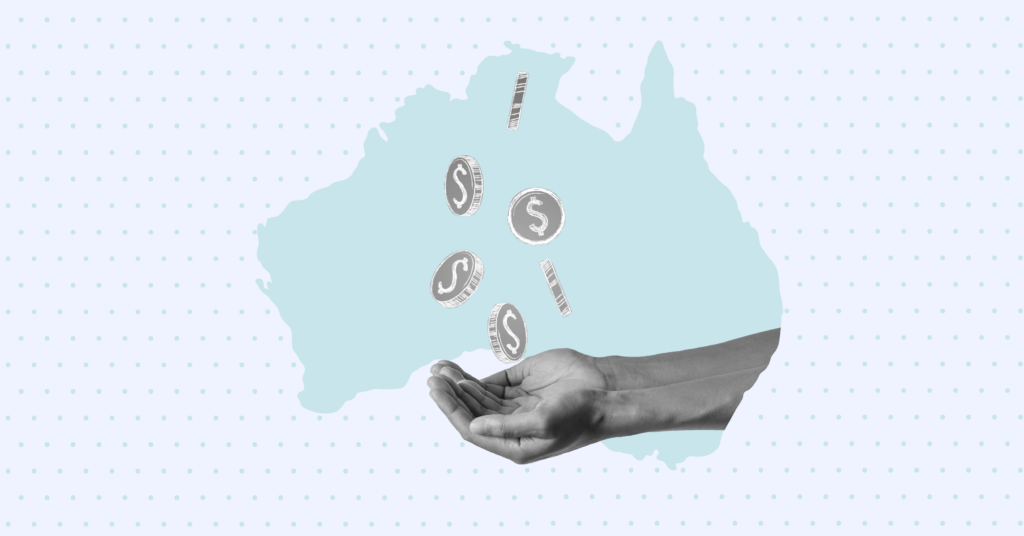If you’re wondering how much teachers in Australia get paid, you’re in the right place. Whether you’re thinking about a career in education or are an existing teacher weighing up your earning potential in a different part of Australia, this is the guide for you. Read on as we break down how much casual relief teachers and full-time classroom teachers earn right around Australia.
The information in this article is correct as of May 2023. For the most up to date salary figures, it’s a good idea to check directly with the teaching body in your state or territory.
How much do casual teachers get paid?
Casual teacher pay in Australia varies depending on factors like the state or territory the teacher is working in, the year level being taught, and number of years of experience the teacher has. Here is a general overview of casual teacher pay across each state and territory in Australia.
New South Wales
The casual teacher pay rate in NSW public schools is based on accreditation level, starting at $439.66 per day for teachers with graduate level accreditation. The rate of pay increases with experience, up to a maximum of $548.95 per day.
Victoria
Casual relief teacher pay in Victoria is by the hour, at a rate of $67.52 up to a maximum daily rate of $405.13. Per the Victorian state government, this rate increases every 6 months.
Queensland
Relief teacher pay in QLD is set at $88.64 per hour for public schools across the state, working out to a daily rate of $443.24.
Western Australia
Relief teacher pay in WA is set at the same award as classroom teachers and is based on experience. In the state’s public schools, casual relief teachers can expect to earn between $37.23 and $75.18 per hour.
South Australia
Relief teacher pay in SA is on tiers based on experience. TRT’s (Temporary Relief Teachers) at the state’s public schools can expect a starting daily rate of $358.32 for tier 1 teachers up to $519.69 for tier 9.
Tasmania
Relief teacher pay in Tasmania is on an hourly rate based on experience, with the hourly rate for different levels ranging from $35.54 – $58.66.
Northern Territory
NT relief teacher pay is based on a teacher’s level of experience, with the hourly rate ranging from $65.28 for tier 1 relief teachers up to $71.83 for tier 3 teachers.
Australian Capital Territory
In the ACT, the starting rate for graduate relief teachers is $289 per day. This increases based on experience, with relief teachers capable of earning up to $453 per day.
It’s important to note that the above rates are for government schools and may vary for teachers working in private or independent schools. Additionally, these rates are subject to change, so it’s always best to confirm the most current rates with the relevant education department or school district.439.66
Your dream teaching role is on ClassCover Jobs
Teacher Salary Australia: How Much do Teachers Get Paid?
Teacher salary in Australia varies between states and territories. In most areas, teacher salary rates are grouped into bands which teachers can progress through based on factors like qualifications and experience. Here is an overview of teacher salaries across Australia.
New South Wales
All teachers in NSW recieved a pay rise as of 9th October 2023. Teacher salary in NSW is divided into 6 bands for teachers at the state’s public schools. Teachers are able to progress within these bands or move up a band based on qualifications, experience, and performance. While graduate teachers can expect a starting salary of $85,000, the state’s most experienced teachers can be paid up to $129,948, with Highly Accomplished and Lead Teachers earning a higher salary.
Teacher pay in NSW at a glance:
- Graduate Teachers (Band 1): $85,000
- Proficient Teachers (Band 2): $95,317
- Band 2.1: $106,131
- Band 2.2: $114,115
- Band 2.3: $122,100
- Highly Accomplished / Lead Teacher (Band 3): $129,948
Victoria
Teacher salary in VIC public schools is split into different ranges based on performance and experience, starting from $75,726 going up to $112,333. From here, teachers can be promoted to Learning Specialist or Leading Teacher which offer slightly higher salary ranges.
Teacher pay in Victoria at a glance:
- Classroom Teacher Range 1: $75,726-$86,636
- Classroom Teacher Range 2: $89.832-$112,333
- Learning Specialist: $117,949-$123,257
- Leading Teacher: $117,949-$123,257
Note: this information is accurate as of 26 April 2023 with all Victorian public school teachers set to get a pay rise on 1st July 2023.
Queensland
Teacher salary in QLD public schools is paid based on tenure and rank, with teachers grouped into six different levels with their own salary ranges. These are:
- Teacher: $78,490-$104,193
- Senior teacher: $108,970
- Experienced senior teacher: $113,118-$114,921
- Highly accomplished teacher: $122,077
- Lead teacher: $133,277
- Head of department (curriculum): $131,712-$134,039
According to Education Queensland, teachers working in rural areas can receive additional payments on top of their salary.
South Australia
Teacher salary in SA is divided into a number of levels based on experience, performance and specific job title. Classroom teachers at South Australian public schools can expect to earn between $74,769-$108,441 per year, while teachers with certain specialties have the potential to earn more.
Teacher pay in South Australia at a glance:
- Classroom teacher: $74,769-$108,441
- Highly accomplished teacher: $117,680
- Itinerant teacher: $84,115-$121,996
- Lead teacher: $124,393
Western Australia
Teacher salary in WA is based on performance and tenure. Graduate teachers can expect to earn a starting salary of $78,397 per year on level 2.1, increasing one level for each year of service up to a maximum of $113,568. Senior teachers earn a salary of $117,854 while above that, level 3 classroom teachers can earn between $122,308-$125,850 per year.
Teacher pay in Western Australia at a glance:
- Qualified teachers: $78,397-$113,568
- Senior teachers: $117,854
- Level 3 classroom teacher: $122,308-$125,850
Per the Education WA website, teachers working in some regional and rural parts of the state may be entitled to up to $17,000 in additional payments.
Tasmania
Teacher salary in Tasmania varies based on experience and qualifications. In the island state’s public schools, teachers are grouped into 5 different bands, each with its own salary range. The bands are:
- Specialist VET Teacher Band 1: $66,730-$105,094
- Teacher: 2 Year Trained Band 1: $64,699-$82,299
- Teacher: 3 Year Trained Band 1: $64,699-$105,094
- Teacher: 4 Year Trained Band 1: $70,794-$105,094
- Teacher: 5 Year Trained Band 1: $74,434-$106,764
Northern Territory
Teacher salary in the NT is paid based on seniority at the territory’s public schools, with pay bands ranging from $81,739 for a CT1 to $117,225 for a CT9. As a guide to how quickly a teacher can progress through the bands, the Teach in the Territory website advises that a teacher can expect to progress to the band CT4, earning $94,039, at the beginning of their fourth year of teaching. This is provided the teacher satisfies certain criteria such as completing the required PD.
For senior teachers, pay bands go from $129,663 for a ST1 to $175,734 for a ST8 level teacher.
Teacher pay in Northern Territory at a glance:
- Classroom teachers: $81,739-$117,225
- Senior teachers: $129,663-$175,734
ACT
Teacher salary in the ACT is grouped into four main bands, starting from $72,511 for new graduates up to $114,624 for the most experienced teachers. The pay bands are:
- 3 year trained: $72,511
- New educators: $76,575-$84,729
- Experienced teacher 1: $88,805-$101,036
- Experienced teacher 2: $107,832-$114,624
It’s important to note that the above salaries are base salaries and do not include additional allowances or bonuses. The salaries also vary depending on the type of school, whether it’s public or private, and the level of education being taught.
Teacher salaries and bands vary significantly across different states and territories in Australia. It’s crucial for teachers to understand the salary structure in their state or territory and negotiate their salaries accordingly. It’s also essential for policymakers to recognise the critical role that teachers play in society and ensure that they are appropriately compensated for their efforts.



